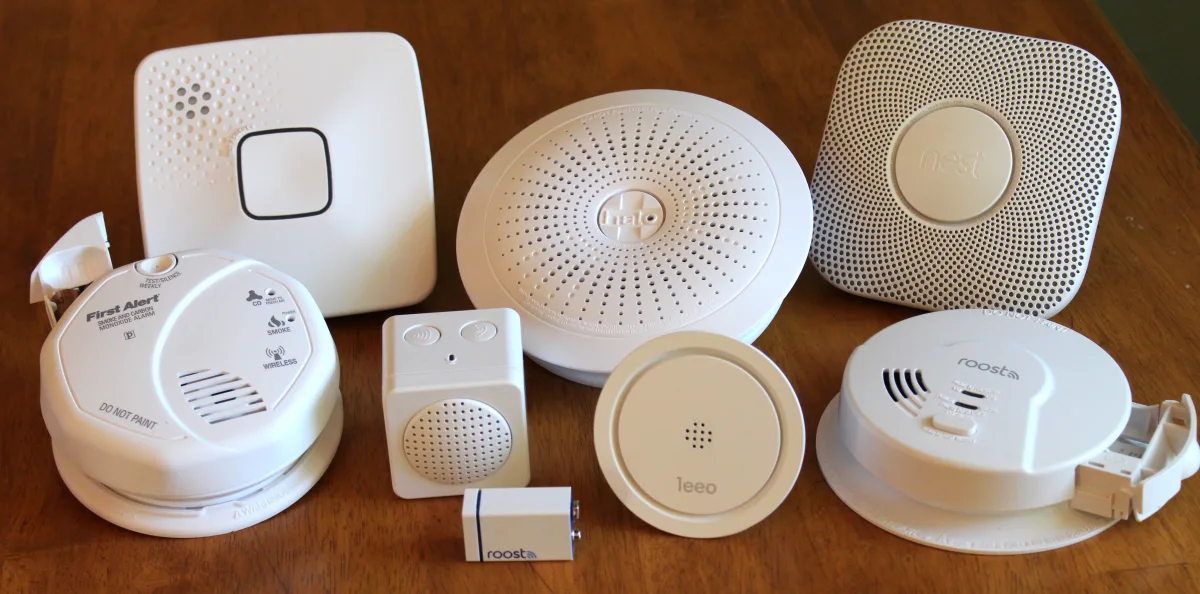Smart smoke detectors may provide the solution you’ve been seeking: real-time mobile alerts and integration with other smart devices for real peace of mind.
Some even help homeowners reduce costs when purchasing home insurance policies – but is this investment worthwhile?
1. They’re a lot easier to install
Smoke detectors serve a critical purpose: beeping in the event of fire to alert residents and firefighters in time to escape or evacuate safely. However, alarms can occasionally go off without reason – according to the National Fire Protection Association, missing or dead batteries are typically to blame when detectors don’t sound during an emergency situation.
Smart smoke detectors can help address this by connecting to your WiFi network and alerting you via a smartphone app whenever they detect an change in temperature, smoke, carbon monoxide levels or any other potential life-threatening factors such as carbon monoxide. Furthermore, these apps may perform lifesaving actions such as shutting off HVAC systems for protection purposes, turning on cameras to record smoke or unlocking doors to welcome firefighters when required.
Hardwired smoke alarms offer many advantages; for one thing, you won’t need to change batteries as often. Also, Wirecutter’s top pick for best smart smoke detector – Google Nest Protect 2nd Gen’s feature allows it to communicate with other Nest Protect devices within your home so they all sound when one device is activated, providing extra peace of mind and security.
Smart smoke detectors use either ionization or photoelectric sensors to detect smoke, and some models even feature dual sensors for early detection of both flaming and smoldering fires. They can be interconnected and some even come equipped with voice alerts as an early warning before sounding an alarm signal.
2. They’re more reliable
Smart alarms typically offer more reliable signaling systems compared to their traditional counterparts, due to being hardwired into central smoke detection systems that feature dedicated cellular connections and battery backup, providing them with real-time alerts even during power outages.
Smart smoke detectors typically use either an ionization sensor or photoelectric sensors to detect smoke. Ionization sensors tend to be better at identifying flashfires while photoelectric ones tend to detect slow-burning fires according to the National Fire Protection Association (NFPA). Dual sensor models may incorporate both technologies.
Smart detectors often come equipped with features like low-battery warning, which sends an automatic alert when battery power decreases. You may also find models equipped with vibrational and flashing light alerts – making these detectors more accessible for people living in older homes who may suffer hearing loss.
Smart smoke alarms can integrate with other devices in your home, such as security cameras or HVAC systems, for added life-saving functionality. For example, they could turn off heating and cooling during a fire incident and trigger alarms to record video of it all; some even come equipped with features to turn on lights and unlock doors in case of emergencies, making escape easier while allowing firefighters easier access.
3. They’re more affordable
Smart smoke detectors can be more cost-effective and easier to maintain than their dated counterparts, both financially and maintenance wise. Instead of changing batteries annually or waiting for those annoying alarm chirps to sound again, many smart fire alarms come equipped with rechargeable batteries which monitor themselves to alert you if their energy runs low; some even send notifications directly to your phone when this occurs!
Smart alarm technology can also detect early signs of smoke, heat and carbon monoxide; this helps decrease fire start-up time while providing better protection for you and your family or business. Many systems also include features to minimize false alarms – an issue costing the UK fire service both money and resources.
Another advantage of smart fire alarms is their versatility: you can connect them with multiple devices – cameras, air conditioning units or air quality units. Their central hub connection gives you control of multiple aspects of your home for added peace of mind. Some models may provide advanced remote monitoring features like integration with security systems or actions to slow the spread of smoke – however these extra features aren’t strictly necessary and a good system should still offer plenty of protection for you home or office.
4. They’re more convenient
Smart smoke detectors go beyond their original purpose of simply alerting you of fire – they connect to the internet and can interact with an app on your device, giving you remote access.
Connect them with other smart devices, like lighting or security systems, or use smart thermostats to lower energy costs and save.
Most smart alarms feature 2-in-1 detection capabilities, meaning they can detect both smoke and carbon monoxide gas produced through combustion, helping you protect both you and your family while eliminating false alarms caused by cooking. Since smart smoke and CO alarms can always connect to your smartphone, real-time mobile alerts as well as whole home warnings are always provided whether at home or away.
Not only can these devices send low-battery notifications, but some even come equipped with emergency responder notification or can remotely shut off HVAC systems to stop fire spread.
Kidde’s 21026044 Wireless smoke and CO detector provides all of the advantages associated with premium models without their higher price tags. You can connect up to 24 devices wirelessly in one system; 18 can serve as smoke/CO detectors while 6 may function as strobe lights or relay modules.

